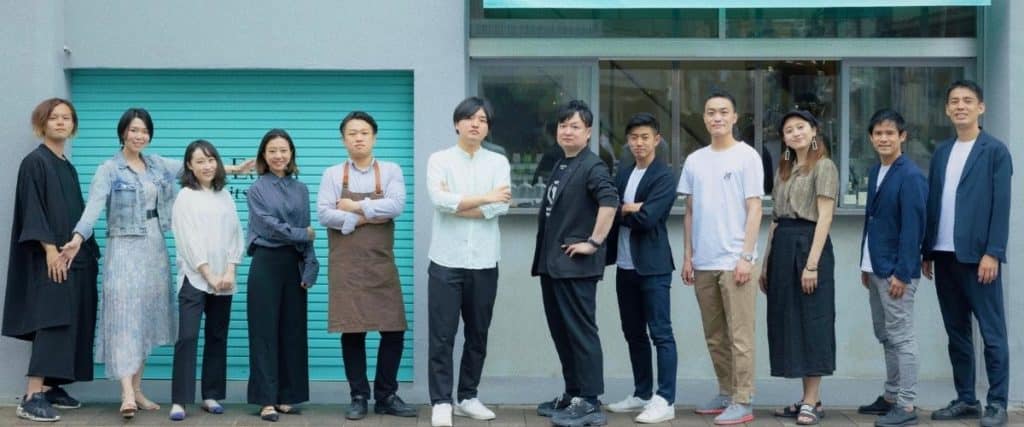The artisanal gin distillery reviving waste sake lees into new and exotic spirits has gained momentum in the beverages industry for its methods and exceptional quality. Hive Life spoke with the CEO and Co-founder of The Ethical Spirits & Co., Yuya Yamamoto, on what inspired the concept, the origins of his sustainability-focused spirits label, and how they are giving hidden gems a second life.
Japan’s once niche sake market was quick to catch global attention for its distinct taste and unique fermentation process. Its increasing popularity among consumers has drawn many alcoholic beverage producers to invest in the ever-expanding craft spirits industry.
Yuya Yamamoto was first introduced to the sake world in 2014, working behind the scenes producing sake rice, consignment brewing, and sake retailing, which accumulated to his extensive experience and expertise in the industry. Illuminated with knowledge and a passion for the craft, he then went on to establish his very own sake distribution enterprise, Mirai Sake Company.

In 2019, the international sake market was valued at US$9.2 billion, foreseeing an annual growth rate of 4.7% from 2020 to 2027. While it has a greater appeal as a lucrative market, what makes it even more attractive is its “no waste” culture, and the rich and aromatic sake kasu (or sake lees), a byproduct of the Japanese sake-making process, often repurposed as a superfood, and in pickled foods and other edible products.
Six years into the market, Yuya came across the growing issue of sake kase being undervalued and on many occasions disposed of without use.
Yuya commented, “In terms of the players in the sake ecosystem, Japan has over 200,000 sake distributor licences, on the other hand, sake lee certified [dealers] account for only half of that,” comparing the significant market gap and its implications for excess sake lee.

Yuya later founded The Ethical Spirits & Co., a sustainable gin distillery, in 2020, alongside Master Distiller, Ayumu Yamaguchi, and COO, Chikara Ono, where they innovated a unique solution to tackle sustainability in the sake world, incorporating leftover sake lees to ferment gin.
Ethical Spirits is made up of a diverse team of experienced founding members from different backgrounds, the Co-founder apprising each and every individual’s role in driving the success of their sustainable craft liquor label.
Chikara Ono, the COO of The Ethical Spirits & Co, brings his own innovative vision and unique market perspective into play. Coming from a diverse background, he spent the first half of his life in Japan, and later moved to the United Kingdom, thereon developing a passion for exploring new concepts, and consequently the market implications of gin.

Yuya shared, “While sake lees are regarded as a low-value byproduct, to me, as a material itself holds the same value as sake. I found this huge gap and [hope to] solve the value issue.”
While sake comes in a liquid form and sake lees is solid, and is mostly disposed of with a valuation of almost zero, both contain the same aromatic properties and alcoholic levels.
In addition, the Co-founder highlighted the many qualities of sake lees, aside from its versatility and ease of handling, he labelled it as an exceptional product with “good aroma, good taste, and good core,” making it an ideal choice for a base ingredient.
With sustainability at the heart of their operations, Yuya initiated the next step of sourcing leftover sake kasu from his existing connections with sake brewery businesses, retailers, and other small-scale producers in the region. His aim was to help sake dealers get rid of their excess lees, and serve a feasible solution to drive sustainability in the space.

With a concept and ingredient locked in, the bigger question imposed was what liquor would be best suited for their new creation. Observing the rising popularity of gin, and its particular flavour that is relished by many modern-day consumers, the founders contemplated experimenting with this specific distilled spirit.
Gin serves as both a viable and favourable option, and offers the extra bit of flexibility to innovate new flavours. “With sake lees as the constant for our spirits, gins, or any other products, [we made sure to develop a concept] that was popular, and had [great] potential to be consumed,” said Yuya.
Yuya shared his vision for Ethical Spirits to hold a basic philosophy of “starring hidden gems” in all their products, such as remnants of sake kasu, rescued beer, and even cacao husks, as they attempt to narrate a unique angle and the revival of “waste products.”

Yuya further explained, “We incorporate recycled and existing ingredients for the basis of our spirits, gins and other distilled products, with the basic characteristic being the alcohol taste and aroma. We also use a variety of upcycled botanicals, for example, we use cacao husks, for our Craft Gin Cacao Ethique, from the Tokyo Riverside Series. For husks, since they are extremely hard and difficult to eat, most chocolatiers will dispose of the external part- we collect it and distil them to make our aromatic gins.”

The cacao husk-based gin is only one of their many innovations- the Co-founder also introduced the diverse range of their collection, highlighting their award-winning Last Series which features the two distilled gins, Modest and Elegant, crafted from sake lees and other botanical extracts, enhancing the juniper berry’s piquant aroma and a dry. The Revive Series regenerates beer and sake, thoughtfully curating its many flavours, which include NINJA, Hoegaarden (Root), the classic BEER, and more.

Ayumu, the CTO and the “engineer mind” behind Ethical Spirits’ artisanal gins, happened to develop the remarkable well-crafted gins available at their online store, serving an authentic taste, aroma, and texture. Exploring many new flavours, and delivering excellence in their products each time, Ayumu perfectly captures the essence of their ethical craft gins.
Undergoing various stages of experimentation, each batch of the tailor-made gins is brewed using recycled sake kasu, or other expired alcohol, along with other waste ingredients, reviving it into delicious, light, highly-aromatic, dry gins.

However, it has not been all forward-looking for the label, despite their progressive approaches to promoting renewability within supply chains, Yuya mentioned how in a more traditional country, some consumers may still have a hard time grasping the concept. “Japanese consumers are rather conservative, having either hard loyalty to existing brands, or difficulty to adapt to something new or recycled, [such as our craft gins],” he commented, putting a great deal of pressure on their deliverance of well-crafted and great-tasting products.
Yuya emphasised offering the top-most quality in their gins, while optimising their direct-to-customer (D2C) business model, with a significant focus on existing sales, as well as other retail channels. Once a retailer himself, Yuya is well-acquainted with the game, and he expressed how existing players are important to their operations and exposure in the region, given that their point-of-purchase (POP) system provides them with factual insights into how well their products are performing on the shelves, and in the real world.

Yuya mentioned, “We focus [solely] on making good products and delivering our characteristics through our craft, [while] some adopt our whole sustainability concept, others [simply wish to enjoy our gins].”
A testament to their luxurious and exquisite tasting craft gins, The Ethical Spirits & Co. was given the highest national award at the World Gin Awards 2021, and received a ground-breaking recognition at the International Wine & Spirits Competition for their Elegant Gin, scoring 98 points, the highest yet received by any Japanese gin.

The Co-founder mentioned yet another one of their groundbreaking innovations, the establishment of the world’s first-ever regenerative distillery, Tokyo Riverside Distillery, right in the heart of the city- Yuyu calls it their “studio,” where art is made.
Founded in 2021, it aims to build a circular economy, localising its supply and production chains. The urbanised space is creating more than just quality gin, its three-storey pillar encapsulates the buoyancy of the brand.
On its first floor, customers can shop for their products, try them, and learn about the different botanicals used. Besides that, people can stop by their Bar & Dining space- Stage on the second floor. The rooftop is dedicated to their sustainable cause, where they grow fresh botanicals and herbs for their gins and menu.

Ethical Spirits’ concept took the nation by storm, inspiring the sustainability movement in the beverage industry. Yuya aspires to bring their artisanal gin distillery to the forefront of the global gin market, paving the way for sustainable innovation and solutions. The Co-founder shared his vision for the future of expanding across Asia and beyond, while building more valued networks within their supply chains.
Although still a long way, the brand is set on the right path to accomplish its mission, delivering expectational craft gins, through a sustainable approach to its operations, with exciting new brewery partnerships and international growth underway.

Interested parties based internationally can purchase The Ethical Spirits & Co’s products on their website, while customers in Japan can access both online and offline retailers.
Related Articles
8 Leading Food Entrepreneurs Disrupting APAC’s F&B Industry





